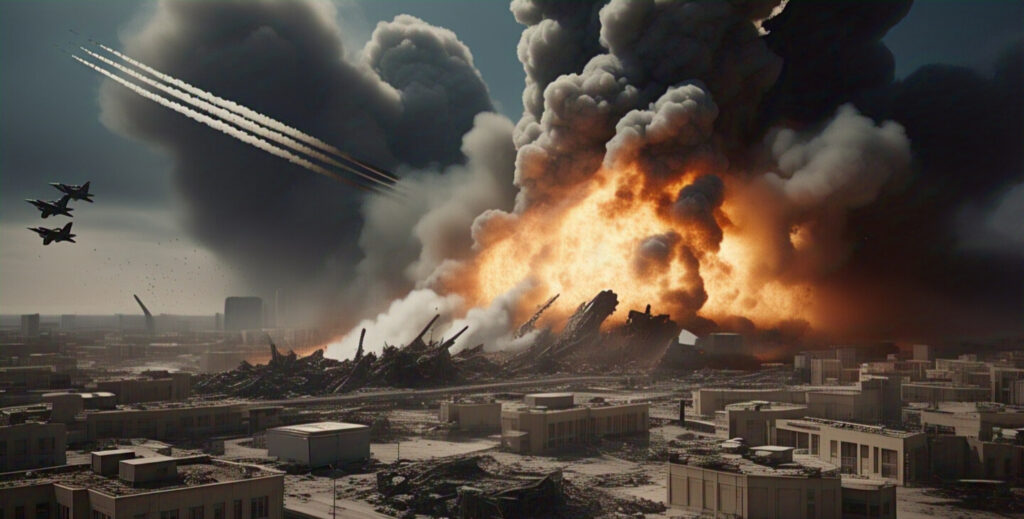Israel Strikes Iran Nuclear Sites as Middle East Braces for Retaliation
Table of Contents
- Overview of the Strike
- Key Iranian Targets Hit
- Regional and Global Reactions
- Possible Retaliation Scenarios
- FAQs about Israel-Iran Conflict
Overview of the Strike
In a dramatic shift in military posturing, Israel strikes Iran at multiple high-profile locations, including nuclear and military leadership sites on June 12, 2025. The strikes marked one of the boldest Israeli military actions in over a decade. This high-stakes operation has sent shockwaves through the global geopolitical landscape, intensifying fears of all-out war in the Middle East.
According to CNN’s live coverage, the Israeli Air Force launched precision airstrikes deep within Iranian territory, reportedly with support from advanced stealth aircraft and electronic jamming technologies.
This is not the first instance of Israel conducting covert operations within Iran, but this time, the state’s leadership has made no attempt to conceal action. With Israel striking Iran nuclear facilities so openly, the risk of an extended and complex regional conflict has vastly increased.
Key Iranian Targets Hit
The infrastructure impacted by the attacks includes some of the most sensitive elements of Iran’s national defense and nuclear ambitions. These include:
- Natanz and Fordow Nuclear Enrichment Centers – Prime facilities for uranium processing
- Iranian Revolutionary Guard Corps (IRGC) Headquarters – Strategically important military leadership compounds targeted
- Missile Production Sites – Facilities believed to be producing ballistic missiles capable of reaching Israel
These strikes indicate Israel’s sharp focus on dismantling Iran’s nuclear capability and degrading its military command apparatus. With this direct and calculated messaging, Israel strikes Iran’s military leadership to disrupt future asymmetric threats across Syria, Lebanon, and Iraq.
Regional and Global Reactions
The region is now on edge. Neighboring countries are scrambling to reinforce defensive positions, with airspace partially shut over Jordan and parts of Iraq. Hezbollah and other Iranian-backed militias are reportedly moving toward combat readiness.
Globally, reactions are split. The United States called for “urgent de-escalation” while affirming support for Israel’s right to defend itself. In contrast, Russia and China condemned the action, stating it could undermine regional stability if Israel strikes Iran again in coming days.
Follow the latest real-time developments on Kashmir News Breaking News.
Possible Retaliation Scenarios
Iran’s Supreme Leader has vowed a “decisive and historic response” following the incident. Security analysts suggest Iran’s retaliation could take a variety of forms, including:
- Cyberattacks on Israeli infrastructure
- Ballistic missile strikes from Iranian territory or from proxy forces
- Covert operations targeting Israeli diplomatic or military sites abroad
Should another Israel strikes Iran nuclear sites event unfold, the potential for a multi-front war emerging in the region increases significantly. Militias in Lebanon, Syria, and Iraq have declared readiness to support Iran depending on its course of retaliation.
FAQs about Israel-Iran Conflict
Why did Israel strike Iran’s nuclear facilities now?
Israeli intelligence assessments suggested Iran was just weeks away from nuclear breakout capability. The strikes are viewed as a preemptive move.
What nuclear facilities were hit in Iran?
The Natanz and Fordow enrichment sites were targeted, along with multiple IRGC command centers closely tied to Iran’s nuclear program.
Will Iran retaliate with force?
Most experts believe Iran will retaliate—possibly using cyberwarfare, missile attacks via proxies, or even asymmetric guerrilla operations.
Is this the beginning of a full-scale Middle East war?
While tensions are extremely high, diplomatic channels remain open. However, if Israel strikes Iran again, future escalations could be rapid and severe.
Conclusion
As Israel strikes Iran in the most direct and visible military action yet, the region and the world are bracing for escalation. The coming days will likely define the trajectory of Middle East diplomacy or further conflict. Leaders are urging calm, but preparations on the ground suggest a different story.
Stay updated with verified coverage on the Kashmir News homepage and explore special reports on conflict and healthcare at Kashmir News Health Section.


